Indigenous Governance Database
Presentations
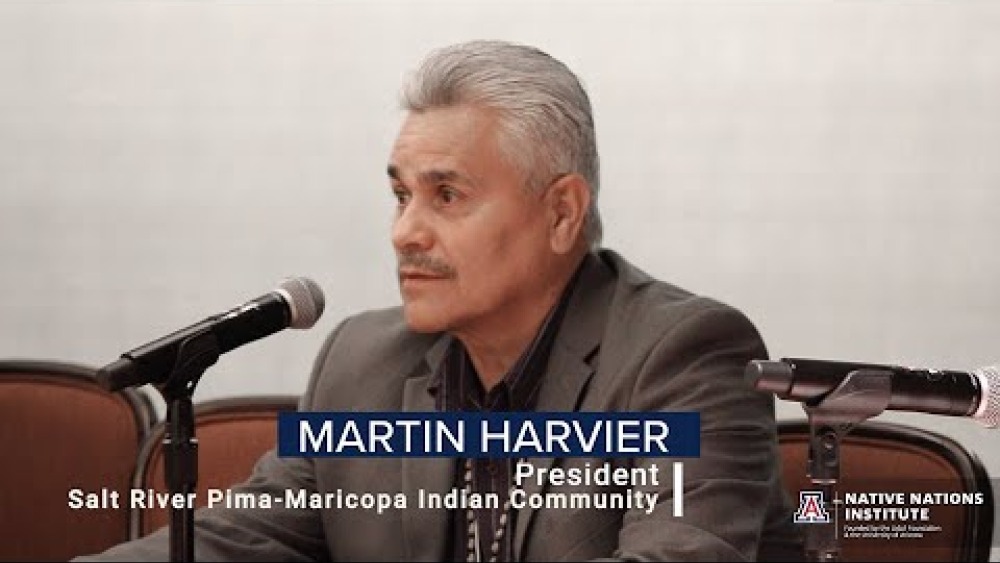
Perspectives From Tribal Leaders: Salt River Pima-Maricopa Indian Community President Martin Harvier
There is no playbook for elected leaders of Native nations, but you can learn a lot from those that have been there before.In this 2023 Native Nations Institute (NNI) Emerging Leaders Seminar held at Talking Stick Resort and Casino on the lands of the Salt River Pima-Maricopa Indian Community,…
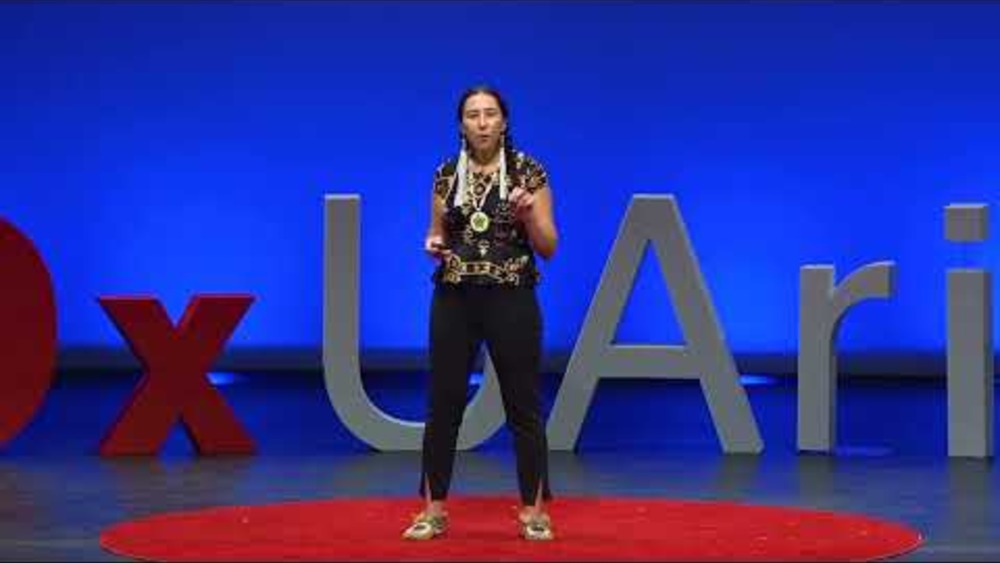
Indigenous Peoples Breathing Data Back | Stephanie Russo Carroll | TEDxUArizona
Indigenous peoples have been successfully working with data for millennia, and Dr. Stephanie Russo Carroll posits a way to bring “databack” into relationship with our messy, 3D, colonized world at TEDxUArizona. Discover the power of Indigenous Data Sovereignty and its role in reconnecting…
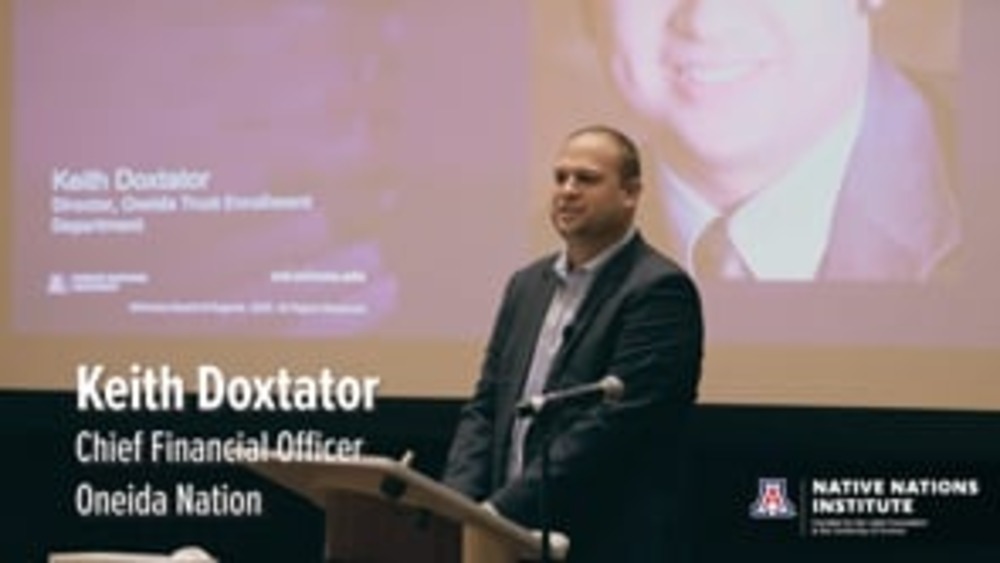
Hot Topics in Tribal Governance: Citizenship + Blood Quantum
As the Director of the Oneida Nation's Trust Enrollment Department, Doxtator used the skills he honed as a financial analyst to examine the current state of the nation's enrollment criteria and illustrate what that meant for the future of the nation. Since Oneida was still relying on Blood Quantum…
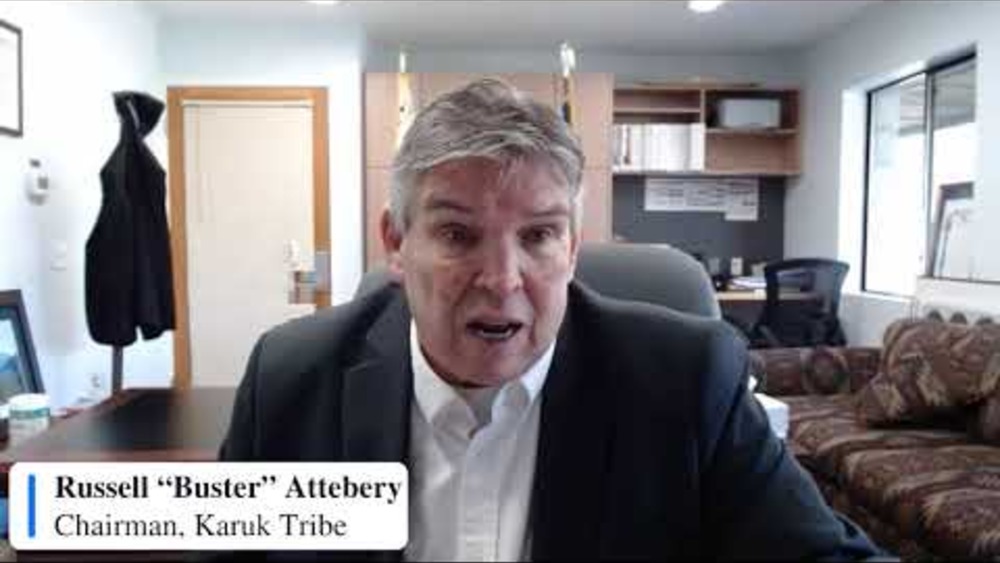
UN 2023 Water Conference: Restoring Rivers, Restoring Sovereignty: Klamath River Dam Removals
A discussion about the impacts of the Klamath River Dams on water resources, cultural practices, climate change and what the upcoming dam removals will mean for Northern California Tribal Nations. Speakers: Shannon Holsey, President, Stockbridge-Munsee Band of Mohican Indians, Treasurer, NCAI…
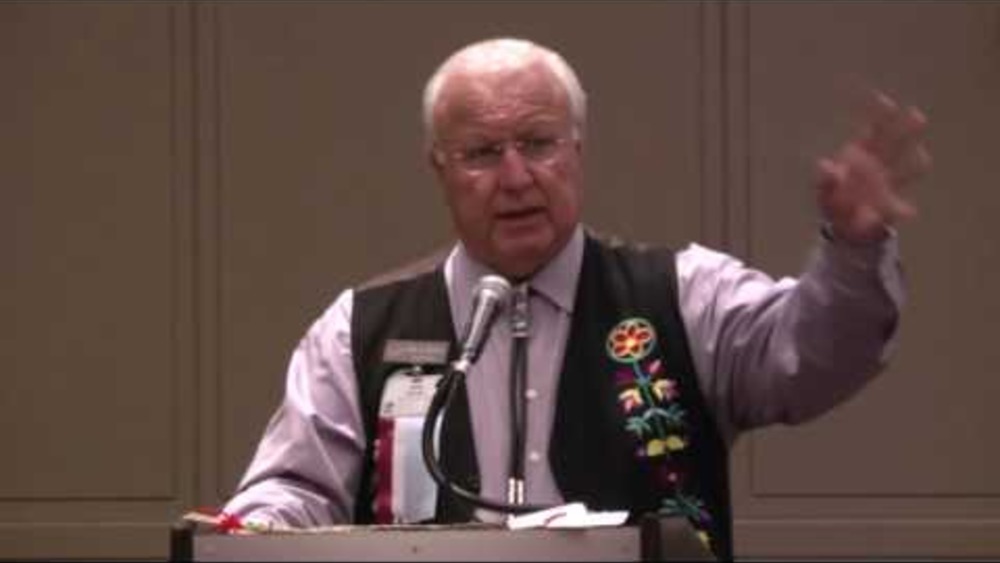
"Modern Tribal Governments, Constitutions, and Sovereignty" Session at NCAI's Annual Convention
This session, convened by NCAI at its 2014 Annual Convention, chronicled the growing movement by tribal nations to reform and strengthen their constitutions in order to reflect and preserve their distinct cultures and ways of life, more effectively address their contemporary challenges, and achieve…
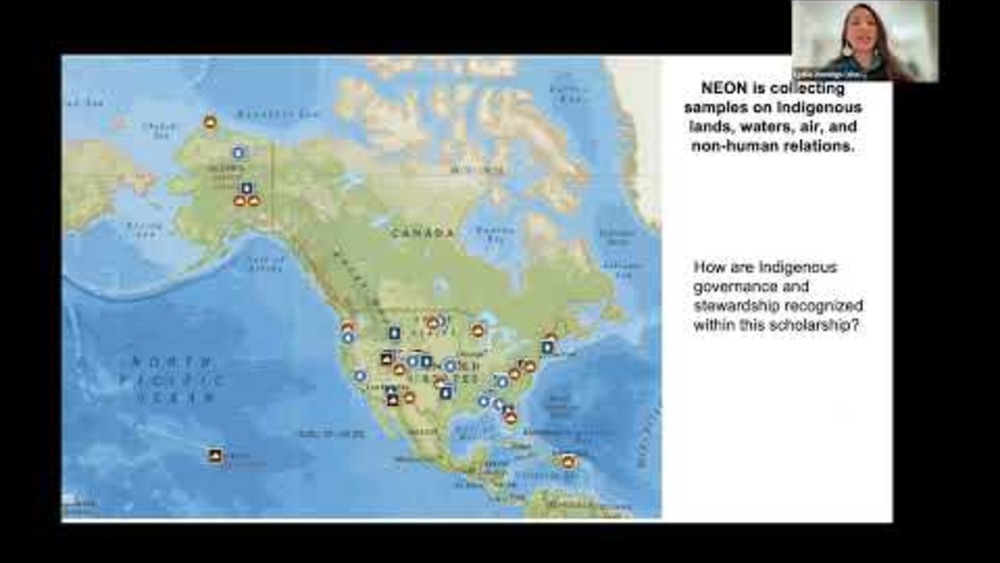
Science Seminar: Implementing the CARE Principles in Open Data Repositories
Image The people and purpose-oriented CARE Principles (Collective Benefit, Authority to Control, Responsibility, and Ethics) reflect the crucial role of data in advancing innovation, governance, and self-determination among…
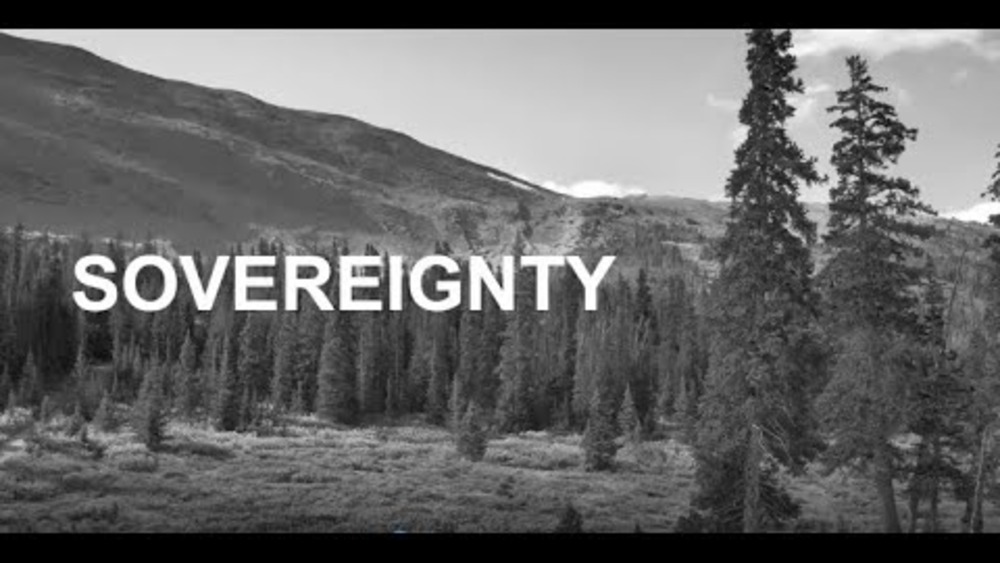
Indigenous Data Sovereignty: How Researchers can Empower Data Governance with Lydia Jennings
Indigenous land management practices result in higher species richness, less deforestation, and land degradation than non-Indigenous strategies. Many environmental researchers, data repositories, and data service operations recognize the importance of collaborating with Indigenous nations,…
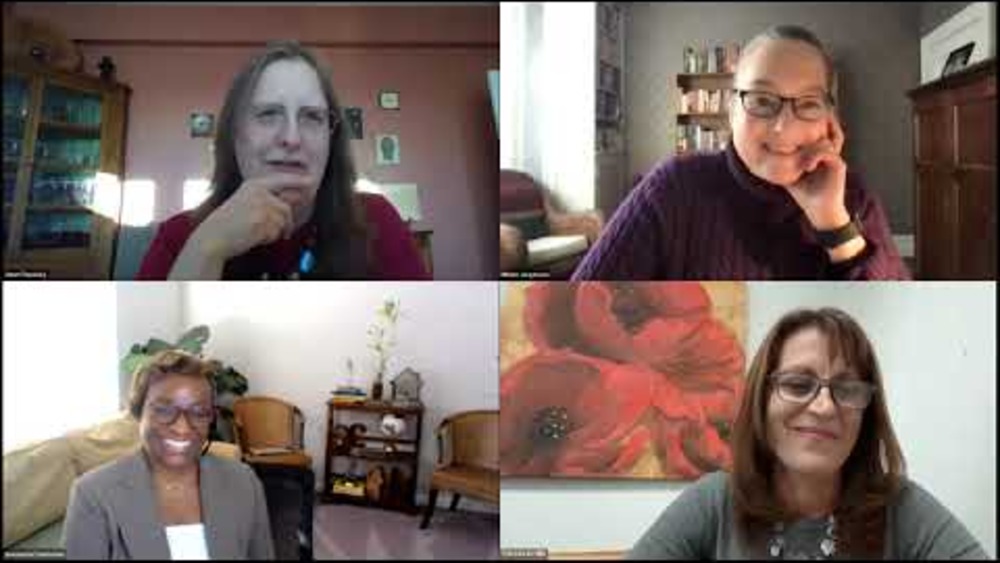
This Is What Capacity Looks Like: Building Development Muscle in Rural and Native Nation Communities
It is often said that rural and tribal communities and organizations need more capacity to fully engage or solve problems in their regions. But what, exactly, equals “capacity”? What key components of capacity need to be carefully and intentionally strengthened so that locally led organizations in…
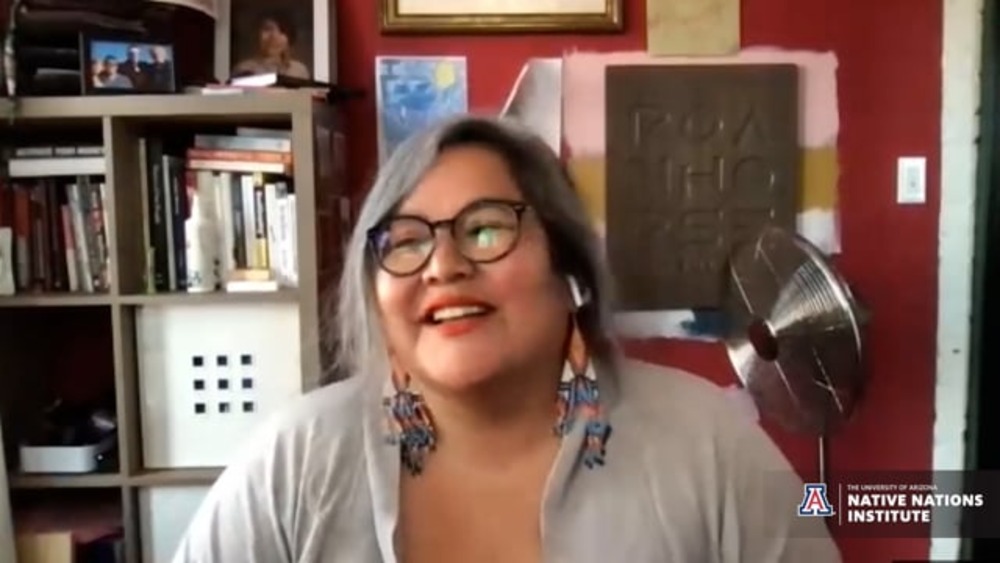
Vanessa Roanhorse Keynote Address: Native American Youth Entrepreneurship Program 2021
Vanessa Roanhorse (Navajo) is the CEO of Roanhorse Consulting, an Indigenous women-led think tank that co-designs wealth and power-building efforts that invest in Indigenous entrepreneurs. She is also the co-founder of Native Women Lead, a national organization dedicated to growing Native women…
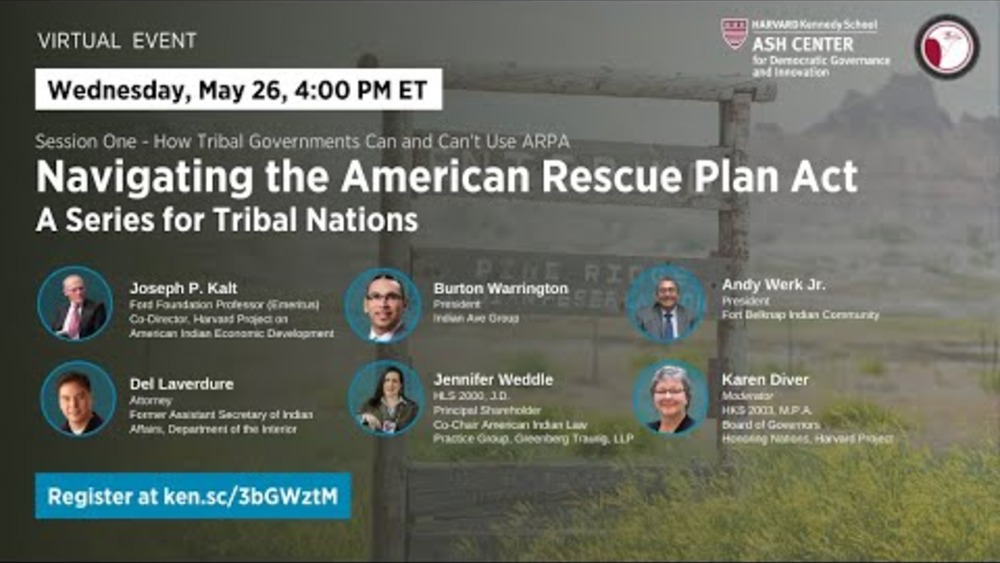
Navigating the ARPA: A Series for Tribal Nations. Episode 1: How Tribal Governments Can and Can't use ARPA
The American Rescue Plan Act (ARPA) provides the largest single infusion of federal funding into Indian Country in the history of the United States. More than $32 billion is directed toward assisting American Indian nations and communities as they work to end and recover from the devastating COVID-…
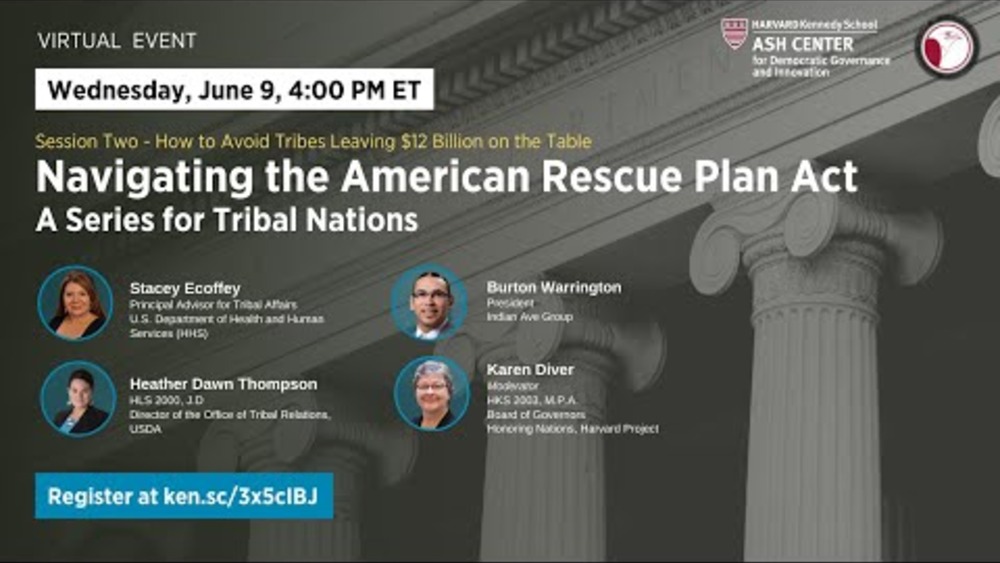
Navigating the ARPA: A Series for Tribal Nations. Episode 2: How Tribes Can Avoid Leaving $12 Billion on the Table
The American Rescue Plan Act (ARPA) provides the largest single infusion of federal funding into Indian Country in the history of the United States. More than $32 billion is directed toward assisting American Indian nations and communities as they work to end and recover from the devastating COVID-…
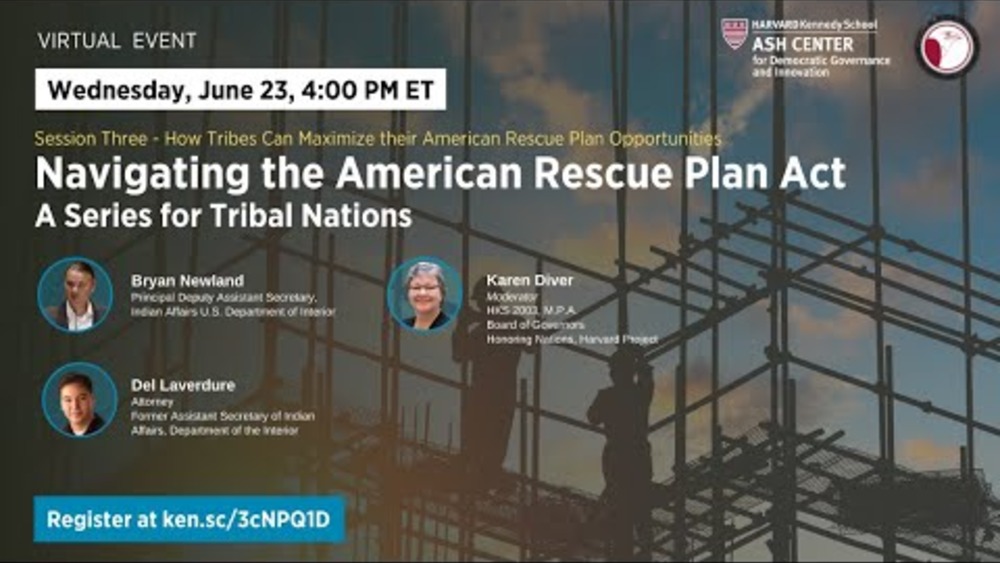
Navigating the ARPA: A Series for Tribal Nations. Episode 3: A Conversation with Bryan Newland - How Tribes Can Maximize their American Rescue Plan Opportunities
From setting tribal priorities, to building infrastructure, to managing and sustaining projects, the American Rescue Plan Act (ARPA) presents an unprecedented opportunity for the 574 federally recognized tribal nations to use their rights of sovereignty and self-government to strengthen their…
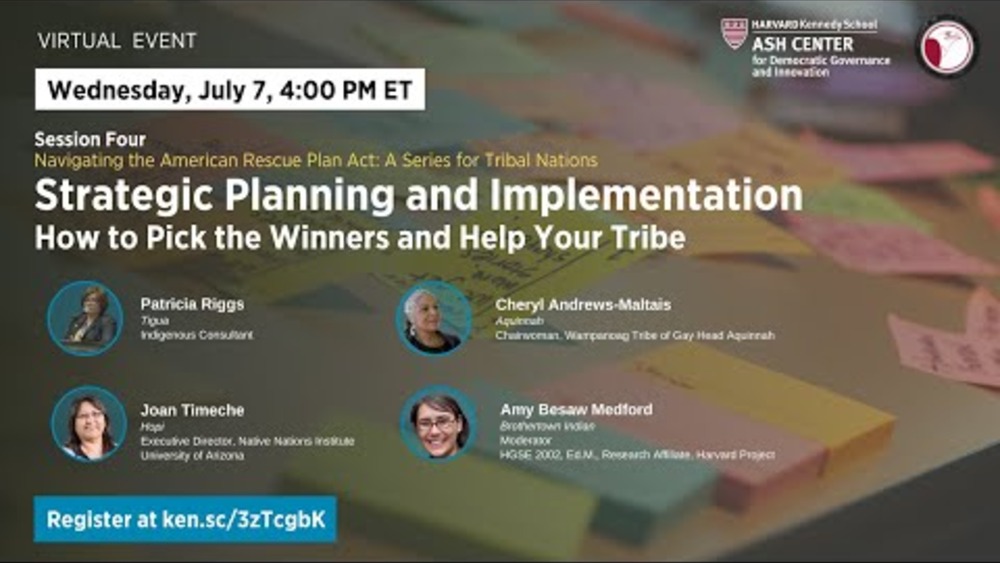
Navigating the ARPA: A Series for Tribal Nations. Episode 4: Strategic Planning and Implementation: How to Pick the Winners and Help Your Tribe
From setting tribal priorities, to building infrastructure, to managing and sustaining projects, the American Rescue Plan Act (ARPA) presents an unprecedented opportunity for the 574 federally recognized tribal nations to use their rights of sovereignty and self-government to strengthen their…
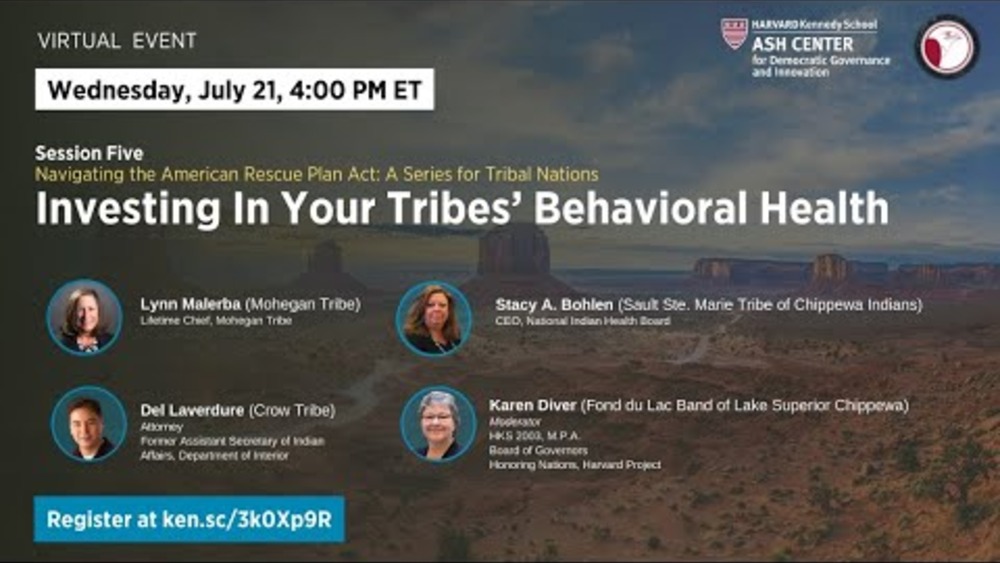
Navigating the ARPA: A Series for Tribal Nations. Episode 5: Investing in Your Tribes' Behavioral Health
From setting tribal priorities, to building infrastructure, to managing and sustaining projects, the American Rescue Plan Act (ARPA) presents an unprecedented opportunity for the 574 federally recognized tribal nations to use their rights of sovereignty and self-government to strengthen their…
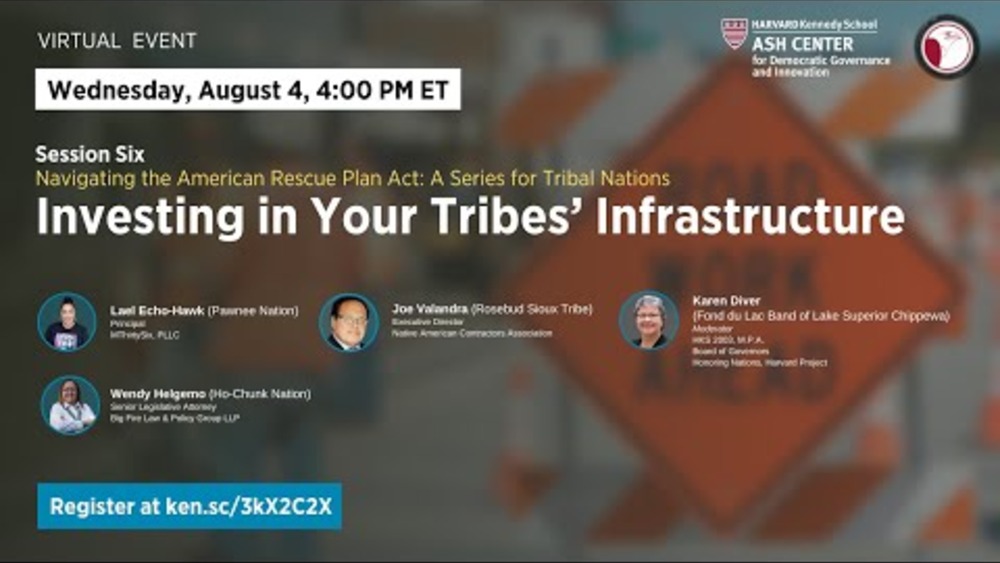
Navigating the ARPA: A Series for Tribal Nations. Episode 6: Investing in Your Tribes' Infrastructure
From setting tribal priorities, to building infrastructure, to managing and sustaining projects, the American Rescue Plan Act (ARPA) presents an unprecedented opportunity for the 574 federally recognized tribal nations to use their rights of sovereignty and self-government to strengthen their…
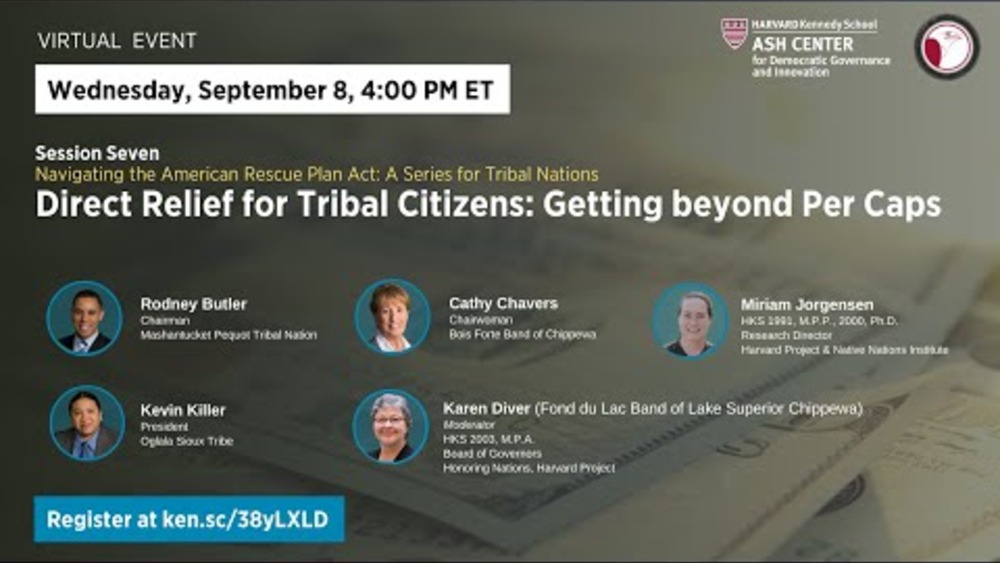
Navigating the ARPA: A Series for Tribal Nations. Episode 7: Direct Relief for Tribal Citizens: Getting beyond Per Caps
From setting tribal priorities to building infrastructure to managing and sustaining projects, the American Rescue Plan Act (ARPA) presents an unprecedented opportunity for the 574 federally recognized tribal nations to use their rights of sovereignty and self-government to strengthen their…
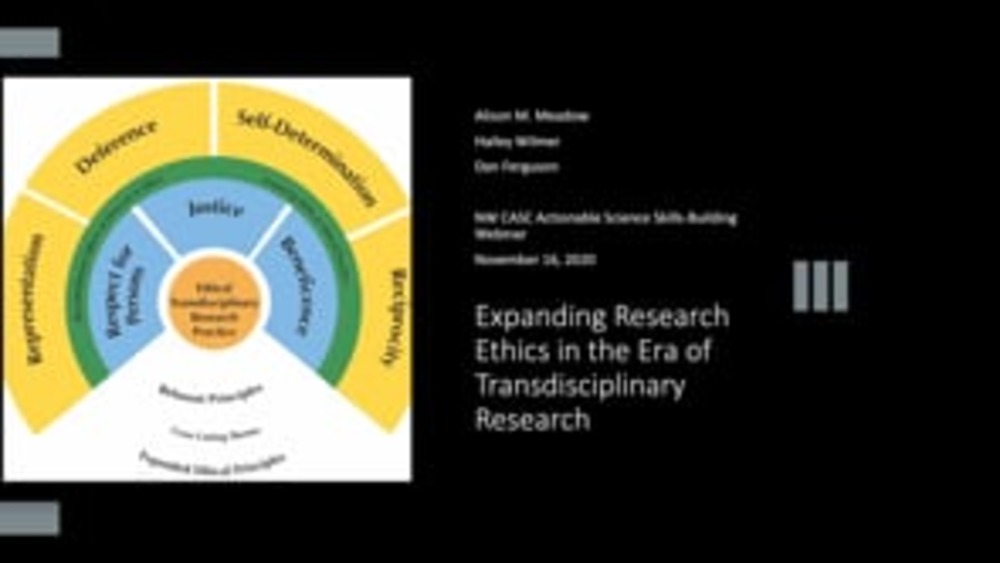
Improving Ethical Practice in Transdisciplinary Research Projects Webinar
Transdisciplinary research, or research conducted by people from different disciplines and organizations working together to solve a common problem, holds promise for communities and scientists seeking to address complex socio-ecological problems like climate change. However, this collaborative…
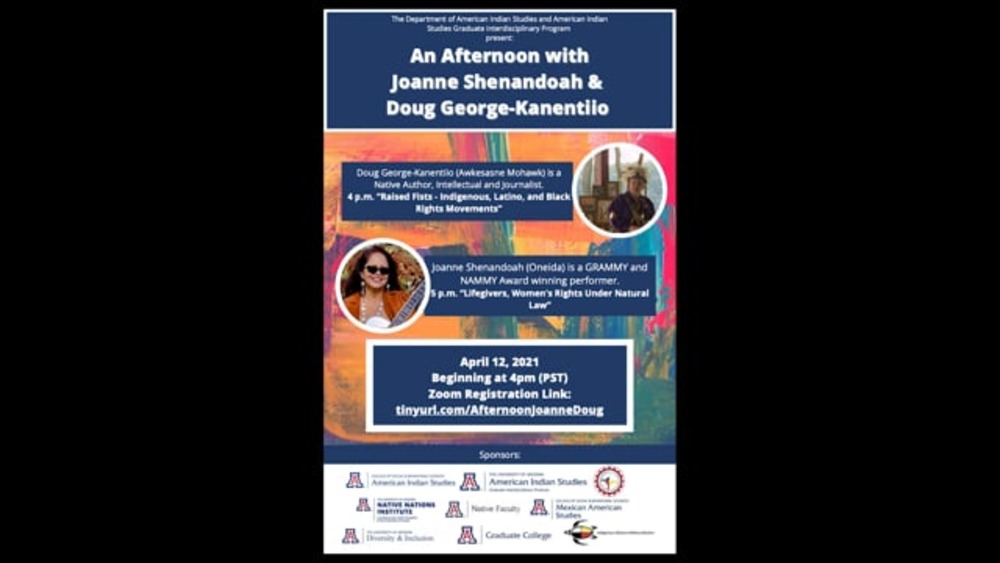
AIS event: An Afternoon with Joanne Shenandoah and Doug George-Kanentiio
On April 12, 2021, the Department of American Indian Studies and Graduate Interdisciplinary Program presented "An Afternoon with Joanne Shenandoah & Doug George-Kanentiio." Doug George-Kanentiio (Awkesasne Mohawk) is a Native author, intellectual and journalist. His presentation was on “Raised…
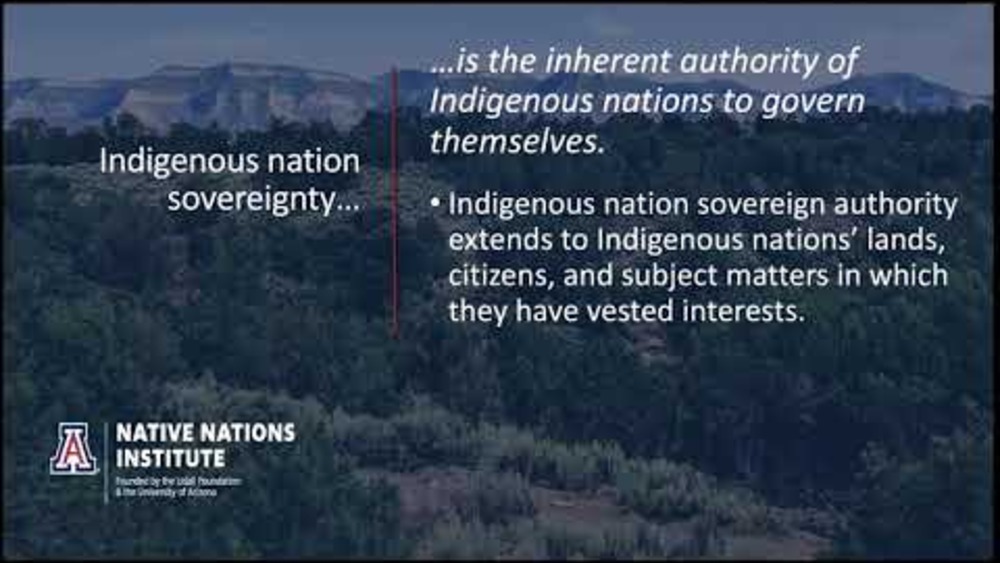
Invisible Borders of Reservations, Tribal Treaties, and Tribal Sovereignty
This 3-part discussion about the invisible borders of reservations, tribal treaties, and tribal sovereignty is led by Dr. Miriam Jorgensen, Research Director of both the University of Arizona Native Nations Institute and its sister organization, the Harvard Project on American Indian Economic…
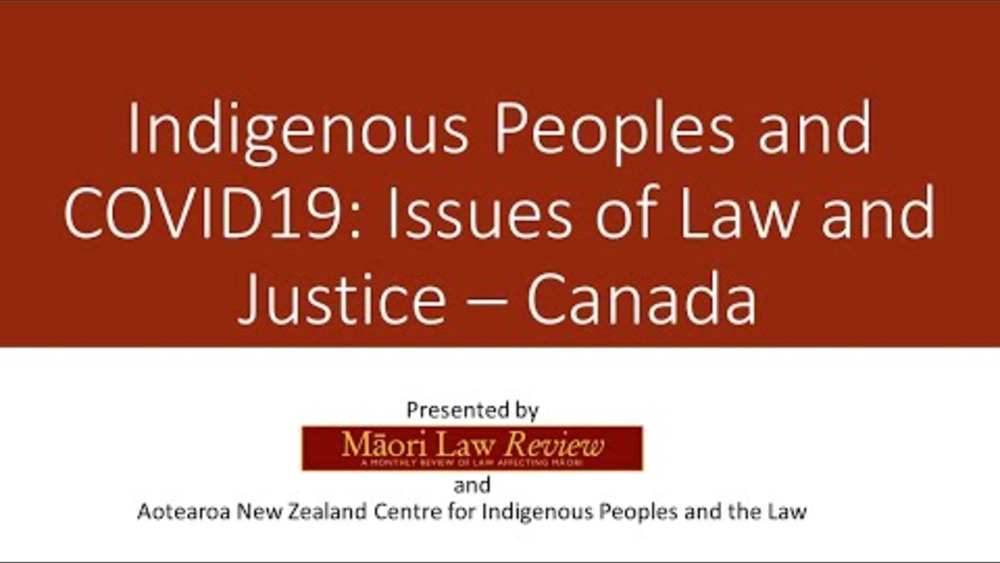
Indigenous Peoples and COVID-19: Issues of Law and Justice – Canada
A co-production of New Zealand's Victoria University of Wellington and the Aotearoa New Zealand Centre for Indigenous Peoples and the Law, the "Indigenous Peoples and COVID-19: Issues of Law and Justice" is a series of conversations focused on the experiences of Indigenous Peoples with COVID…
